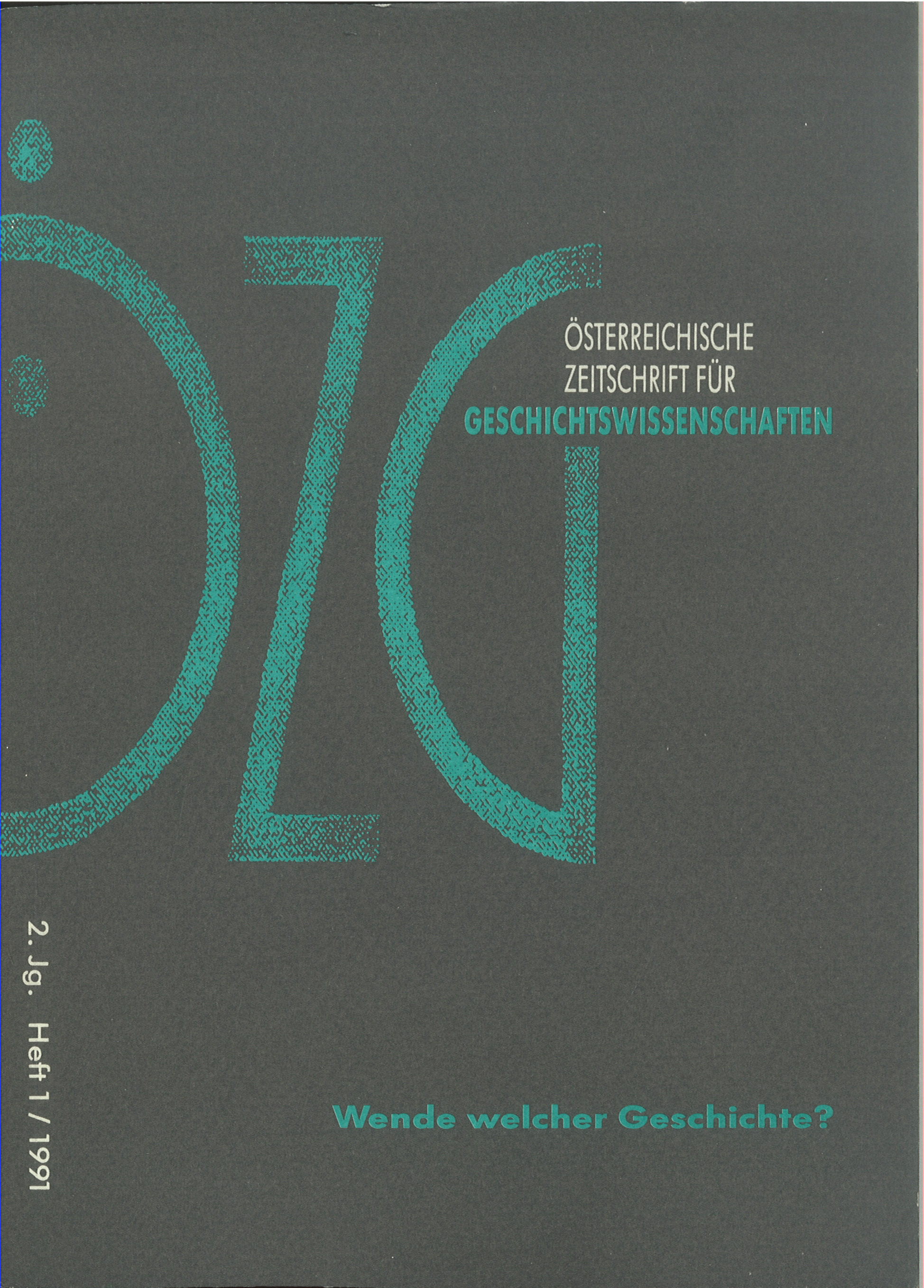Geschichtswissenschaft und autoritärer Staat
Ein deutsch-deutscher Vergleich
DOI:
https://doi.org/10.25365/oezg-1991-2-1-2Abstract
In this article the author compares the state of historiography in the former East German territories after the elimination of the communist regime with the situation of German historiography after the defeat of Nazism on the one hand, and the development of historiography in both German states between 1945 and 1990 on the other hand. Considering the actual difficulties occuring during the exchange of personal and the reorganization of institutions in the former East German historiography the following problem is discussed: to what extent had the historians been able to maintain their scholarly integrity and responsibility, or had they been transformed into mere apologists of the regime? The author is convinced that the rupture of 1989 was deeper than that of 1945. For the emergence of a democratic and pluralistic historiography prohibited by the communist regime has gone further in the GDR today than it was after 1945 in Germany as a whole. This is due to the fact that the process of democratization also took place very late in former West Germany. Here, a radical denazification was not carried out and a critical reflection of history's methodological and theoretical traditions did not take place until the 60ies. The author expresses the opinion that a removal of the ideological supporters · of the old regime from leading positions is indispensable, but a reorganization of German historiography should result in an integration, not a segregation of the historians of Germany's „five new lands."


